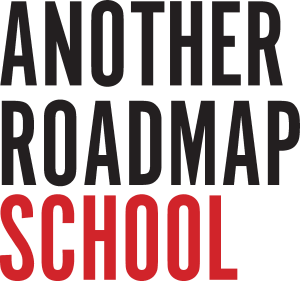We are a group of educators, lecturers, and cultural workers based in London.
- research into the exportation of creative industries education from the UK and hegemonic roots of colonial education
- educating ourselves about methodologies for researching art education (in particular Participatory Action Research)
- establishing a research network of academics, educators and practitioners in the UK who are working on these topics:
- understanding the effects/experiences of vocation-led learning and employability training in arts education
a) UNESCO DOCUMENT
We will contribute to Another Roadmap’s critical glossary grounding terms in arts education practices in the United Kingdom. These circulate around three areas: The linking of arts education to so-called ‘creative’ vocations and the ramifications in terms of working conditions, precarity etc. The relationship between the Roadmap and colonial and neo-colonial processes including the work of the British Council’s Creative Economy Unit, the spread of UK universities around the world and the link between creativity/arts programmes and new trade agreements Interrogation of the relationship between the universal values in the document and the language of celebration used in the Roadmap’s ‘case studies’.
OUTCOME: a collaboratively written article and web portal with resources for use by arts educators in other countries
b) HISTORIES
Institutional Histories: We will pool together existing resources on the institutional histories of Arts Education in Britain and the colonies including the work of Felicity Allan, translation of the work of Carmen Mörsch and others.
OUTCOME: Publication of an annotated bibliography.
Social Movement Genealogies: Working with London’s Radical Education Forum, we will chart and research histories of arts and cultural education in the context of UK and global social movement (that worked through the UK) to develop a strong theoretical and historical understanding of this field of critical arts education. We will also review the critical or radical histories of arts education in the art school.
As an example, download the
Radical Education Workbook
by the Radical Education Forum here:
OUTCOME: Publication (in collaboration with groups in other countries)
c) CONTEMPORARY PRACTICES
We will develop a two-year Participatory Action Research project with students and educators at the secondary and post-secondary level in London about the way in which arts education processes have led or upheld social inequities. Internally and externally produced interviews with students and teachers will question why they do or do not enroll in arts education, what they hope to gain from it and the realities as they see them, and the contradictions they encounter. This will include students and teachers in performance or ‘creative’ programmes and those in business at the secondary level, and post-secondary students enrolled in creative programmes such as arts management and architecture.
OUTCOME: Students and teachers will write collaborative reflections using creative methodologies and develop critical curricula to be presented at the UNESCO meeting in Columbia in 2015 and to teacher training colleges and professional arts educator training programmes (such as engage) in the areas of Arts, Drama, Architecture, ‘Employability’ and Guidance in the UK.
In addition to developing a group of students and teachers able to speak about the contradictions in Arts Education practices, the aim of the contemporary practices section is to:
- a) amass a network of critical arts educators in London who can share resources and reflections
- b) develop other ways of speaking of arts education beyond the celebratory
- c) assess what happens when critical and questioning the terms of arts education occurs, what blocks are imposed and what possibilities ensue.
